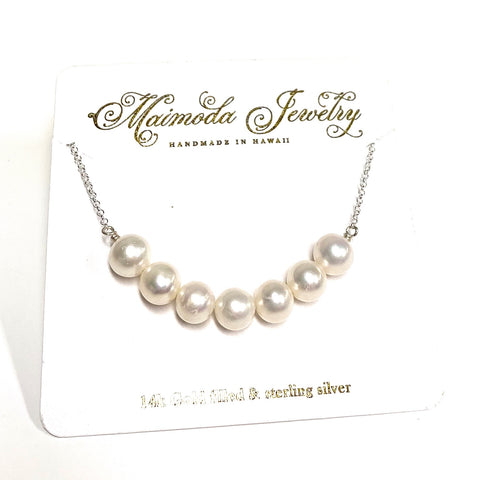Necklaces
-
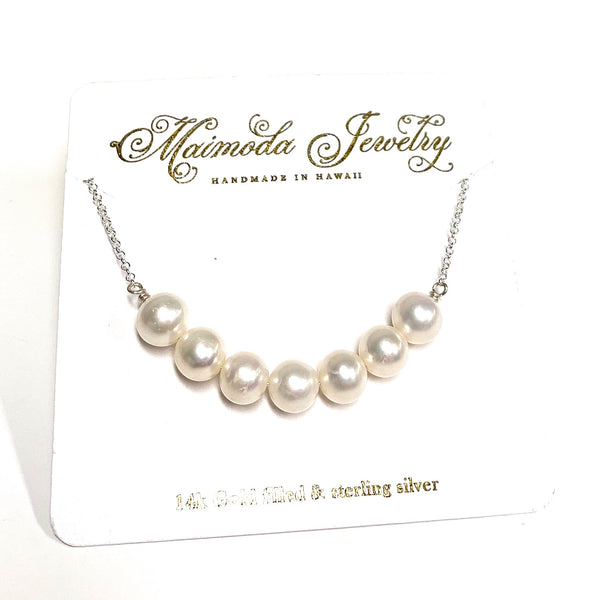
Maimoda
Necklace Tehina - white pearls (N117)
$ 34.00
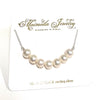
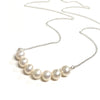
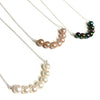
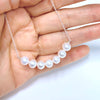
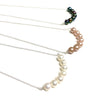 Visit product page →
Visit product page →Delicate gold filled cable chain and fresh water pearls. Pearls are measured a bout 5-6mm.
Necklace is 16 inches long unless otherwise request.
Gold filled springing clasps.
For a matching earring please visit:
https://www.etsy.com/listing/153691718/fresh-water-pearl-infinity-earring?ref=shop_home_activePearl is the birthstone for June.
Pearls fit into two categories: freshwater and saltwater. As their name implies, freshwater pearls are formed in freshwater mussels that live in lakes, rivers, ponds and other bodies of fresh water. By contrast, saltwater pearls grow in mollusks that live in the ocean, usually in protected lagoons. Akoya, South Sea and Tahitian are the three main types of saltwater pearls. As with the saltwater pearls, the vast majority of freshwater pearls are cultured, but in very rare cases natural freshwater pearls do exist.
A pearl forms when an irritant is introduced into the shell of a mollusk. In nature, this may take the form of sand, a chunk of rock, or some other organic material. Cultured pearls are made by inserting an irritant into the shell, commonly a piece of shell from another mollusk. The mollusk forms a layer of protective material called nacre over the foreign material so that it will no longer irritate the animal. The resulting ball of luminous nacre is known as a pearl.
Like saltwater pearls, freshwater pearls can come in a range of colors. The color of the pearl can also be further enhanced with bleaching and dyeing, allowing producers to make pearls in a range of colors available. Perfectly round freshwater pearls are extremely rare, and therefore highly prized. Most freshwater pearls are baroque pearls, meaning that they are irregularly shaped. Commonly, these pearls are simply more ovoid in shape, or take the form of tear drops. Flattened wing pearls are also not uncommon.


